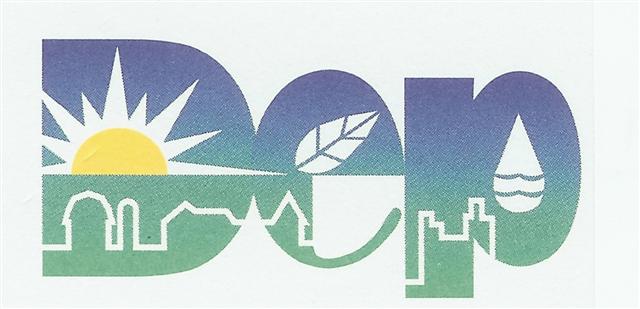 Chrin Brothers Sanitary Landfill has agreed to pay a $114,000 fine to the Pa. Department of Environmental Protection for odor, air pollution and waste management violations, according to an article in the Express-Times (Easton, PA). It also agreed to withdraw an appeal of the fine which had been pending before the state Environmental Hearing Board. (We reported that appeal in our post of January 31.) In addition to paying the fine, Chrin also agreed to improve its waste and odor management practices.
According to the article by reporter Colin McEvoy, "Chrin said the landfill will adopt new off-site odor-minimization procedures and implement twice-daily patrols to monitor the landfill perimeter for potential odors. The company will also instruct its haulers on proper management of particularly odorous loads to avoid problems during disposal, he said, and will deploy a rapid-response team to inspect those loads whenever they are accepted." Chrin also agreed to give up any further appeal rights.
Chrin Brothers Sanitary Landfill has agreed to pay a $114,000 fine to the Pa. Department of Environmental Protection for odor, air pollution and waste management violations, according to an article in the Express-Times (Easton, PA). It also agreed to withdraw an appeal of the fine which had been pending before the state Environmental Hearing Board. (We reported that appeal in our post of January 31.) In addition to paying the fine, Chrin also agreed to improve its waste and odor management practices.
According to the article by reporter Colin McEvoy, "Chrin said the landfill will adopt new off-site odor-minimization procedures and implement twice-daily patrols to monitor the landfill perimeter for potential odors. The company will also instruct its haulers on proper management of particularly odorous loads to avoid problems during disposal, he said, and will deploy a rapid-response team to inspect those loads whenever they are accepted." Chrin also agreed to give up any further appeal rights.
Chesapeake Bay Foundation and Pennsylvania Environmental Council Issue New Proposal to Reform Pennsylvania Laws on Natural Gas Drilling
The Chesapeake Bay Foundation (CBF) and the Pennsylvania Environmental Foundation (PEC) have submitted a legislative proposal to the Corbett administration and state lawmakers "designed to help ensure safe and responsible Marcellus Shale drilling and gas extraction in Pennsylvania." The proposal sets forth detailed amendments to the Pennsylvania Oil and Gas Act to confer additional authority to regulate and manage deep shale and unconventional drilling techniques that were not contemplated when the law was enacted. The proposal was provided to Governor Corbett’s Marcellus Shale Commission and members of the Pennsylvania General Assembly.
The proposed amendments are based on the findings of a PEC report issued last year called “Developing the Marcellus Shale” which outline a series of environmental policy and planning recommendations for unconventional shale gas development. The PEC/CBF press release states: "These amendments are aimed at restoring public confidence in the industry’s ability and commitment to responsible drilling and environmental compliance. The proposal includes 50 specific amendments to the Act which reform the permit process to allow for greater stakeholder input and set clear environmental protection standards for the hydraulic fracturing process and the infrastructure that should be required for shale gas extraction."
The organizations propose to split the gas well drilling permit process into two phases that require enhanced collection and review of site-specific data prior to approval. The proposal also calls for a number of tighter restrictions in the Pennsylvania Oil and Gas Act.
A copy of the press release can be found here. A PDF of the complete, detailed legislative proposal is here.
PADEP/EQB Propose Overhaul of State NPDES Program Requirements
The Pennsylvania Department of Environmental Protection (PADEP) and the Environmental Quality Board (EQB) have proposed a complete reorganization and overhaul of the current Pennsylvania program regulations for National Pollutant Discharge Elimination System (NPDES) permits, monitoring and compliance. As the public notice says, "The primary goal of the proposed rulemaking was to rebuild the regulation from scratch." The new proposed requirements are set forth ina proposed rulemaking published in the February 13, 2010 Pennsylvania Bulletin. The proposed rules can be found online at http://www.pabulletin.com/secure/data/vol40/40-7/276.html. Public comments on this proposal may be submitted to the Environmental Quality Board at any one of the following addresses: U.S. Mail: EQB, P.O. Box 8477, Harrisburg, PA 17105-8477; Electronically: RegComments@state.pa.us; Street Address: 16th Floor, Rachel Carson State Office Building, 400 Market Street, Harrisburg, PA 17101-2301. Comments must be received by the Environmental Quality Board by March 15, 2010.
PADEP Proposes More Stringent Air Pollution Standards/NSR Rules for Fine Particulates
On February 6, 2010 The Pennsylvania Environmental Quality Board (EQB) published a formal notice of proposed rulemaking to amend Pennsylvania's New Source Review (NSR) rules to incorporate current federal requirements for fine particulate matter, so-called "PM 2.5". Recent federal revisions to the National Ambient Air Quality Standard (NAAQS) for PM2.5 have made the standard much more stringent, reducing the primary and secondary 24-hour NAAQS for PM2.5 from 65 micrograms/cubic meter to 35 micrograms per cubic meter. As a result of this change, Bucks County, Lehigh County and Northampton County (among others) have been designated as non-attainment for the 24-hour NAAQS for PM2.5.These changes will affect new major stationary sources and major modifications to such sources which emit fine particulate matter.
The proposed rulemaking was published for public comment in the Pennsylvania Bulletin of February 6, 2010. Comments on this proposal may be submitted to the Environmental Quality Board at any one of the following addresses: U.S. Mail: EQB, P.O. Box 8477, Harrisburg, PA 17105-8477; Electronically: RegComments@state.pa.us; Street Address: 16th Floor, Rachel Carson State Office Building, 400 Market Street, Harrisburg, PA 17101-2301. Comments must be received by the Environmental Quality Board by April 12, 2010.
PADEP Grants Chrin Landfill 10-Year Permit Renewal; Imposes Fine and New Conditions
 The Pennsylvania Department of Environmental Protection (PADEP) granted Chrin Brothers landfill in Williams Township, Pennsylvania a 10-year renewal of its municipal waste landfill permit, according to an Express-Times (Easton, PA) newspaper article linked here. While granting the landfill a renewal of its operating permit, DEP also imposed a $187,500 fine for prior violations for off-site odors, nuisance minimization problems and insufficient landfill gas management. PADEP also imposed additional permit conditions, including the requirement to install temporary capping measures that will cover about 60 percent of the landfill within two years.
The PADEP facility eFACTS file on the landfill can be viewed by clicking here. The file includes permit information, history of inspections and violations, and other pertinent data.
The Pennsylvania Department of Environmental Protection (PADEP) granted Chrin Brothers landfill in Williams Township, Pennsylvania a 10-year renewal of its municipal waste landfill permit, according to an Express-Times (Easton, PA) newspaper article linked here. While granting the landfill a renewal of its operating permit, DEP also imposed a $187,500 fine for prior violations for off-site odors, nuisance minimization problems and insufficient landfill gas management. PADEP also imposed additional permit conditions, including the requirement to install temporary capping measures that will cover about 60 percent of the landfill within two years.
The PADEP facility eFACTS file on the landfill can be viewed by clicking here. The file includes permit information, history of inspections and violations, and other pertinent data.
The PADEP's decision renewing the permit and imposing the fine and additional conditions can be appealed to the Pa. Environmental Hearing Board.
UPDATE: Chrin Brothers, Inc. has appealed the PADEP fine to the Pa. Environmental Hearing Board. For more information, see our post of January 31, 2010.
Pa. Supreme Court Gives Victory to Mercury-Emitting Coal Power Plants; Invalidates State DEP Mercury Emission Limits
The Pennsylvania Supreme Court handed a victory this week to coal-fired electric generating facilities when it invalidated Pennsylvania's regulations limiting their emission of mercury. In its December 23, 2009 decision, the Court found that the Pa. regulations could not stand after the legal basis for the rule - a federal EPA decision which provided for state regulation of mercury emissions from oil and coal-fired electric generating units - was invalidated by the U.S. Court of Appeals for the D.C. Circuit.Background. In 2005, the U.S. Environmental Protection Agency (“EPA”) issued a final "Delisting Rule" which removed oil- and coal-fired electric generating units (EGUs) from the list of mercury pollution sources regulated under the hazardous air pollutants provisions of section 112 of the Clean Air Act. (70 Fed. Reg. 15994-01 (03/29/2005)). However, the EPA did not abolish regulation of mercury emissions from oil- and coal-fired EGUs. Rather, it shifted the responsibility for the mechanics of the regulation to the states. To accomplish this shifting to the states, the EPA promulgated the Clean Air Mercury Rule (“CAMR”). 70 Fed. Reg. 28606 (5/18/2005). CAMR was predicated on the Delisting Rule and it established a mercury emission budget for each state and required each state to develop a program to regulate the mercury emissions from oil- and coal-fired EGUs. Pennsylvania opted to develop a mercury regulation program that would keep emissions within the mercury budget set by the EPA and developed the PA Mercury Rule as the Pa. state response to CAMR. The PA Mercury Rule required, among other things, coal fired power plants to reduce their mercury emissions by 80% by January 2010.
EPA's decision to delist coal-fired electric generating stations from section 112's list of mercury sources was challenged in federal court. The D.C. Circuit Court of Appeals ultimately invalidated that delisting decision because EPA failed to follow the required delisting procedures. New Jersey v. Environmental Protection Agency, 517 F.3d 574 (D.C. Cir. 2008). The effect of that D.C. Circuit Court of Appeals decision was that EGUs remained listed as mercury sources under federal law, Section 112. The court also found that once the Delisting Rule was declared invalid, CAMR no longer had a legal basis and it vacated CAMR as well.
Because under the Pa. Air Pollution Control Act, DEP generally cannot regulate hazardous air pollutants which are federally regulated under Section 112 of the Clean Air Act, and the very basis for the Pa. Mercury Rule was EPA's delisting decision, the Pa. Supreme Court held that once the EPA delisting decision was invalidated by the D.C. Circuit Court of Appeals, the Pennsylvania state rule could not stand.
Case: PPL Generation, LLC, et al., v. Commonwealth of Pennsylvania, No, 7 MAP 2009 (Pa. Supreme Court, December 23, 2009
PA DEP Proposes Major Revisions to Act 2 Requirements for Remediation of Contaminated Properties
The Pa. Department of Environmental Protection has proposed new major revisions to Pennsylvania's Act 2, Land Recycling Program requirements for the cleanup of contaminated real estate. In a December 15, 2009 presentation to the Environmental Quality Board, DEP proposed to modify statewide cleanup standards for contaminated sites. Under the proposal, Pennsylvania would adopt the cleanup standards under the current EPA Risk Assessment Guidance for Superfund (January 2009) and would revise the tables of numeric values for Statewide health standards. The proposal would also ensure a regular review of the requirements every three years for possible revisions to the tables of numeric cleanup values for substances regulated under Act 2. Under the new proposal, cleanup standards for 215 pollutants would be made higher; the standards for 170 other pollutants would be made lower. In addition, 26 new substances would be added to the regulations. The DEP Powerpoint presentation to the EQB has additional details. For further information, the entire proposal, including an Executive Summary, preamble to the proposed regulation, and the revised Land Recycling Program Annex A and tables are available here: Proposed Rulemaking: Administration of the Land Recycling Program



